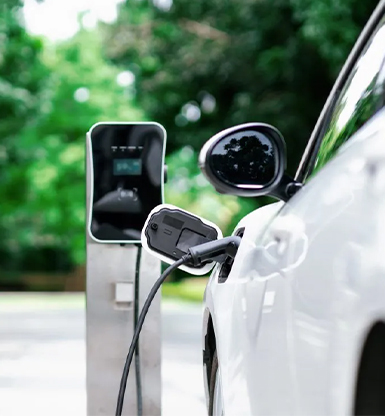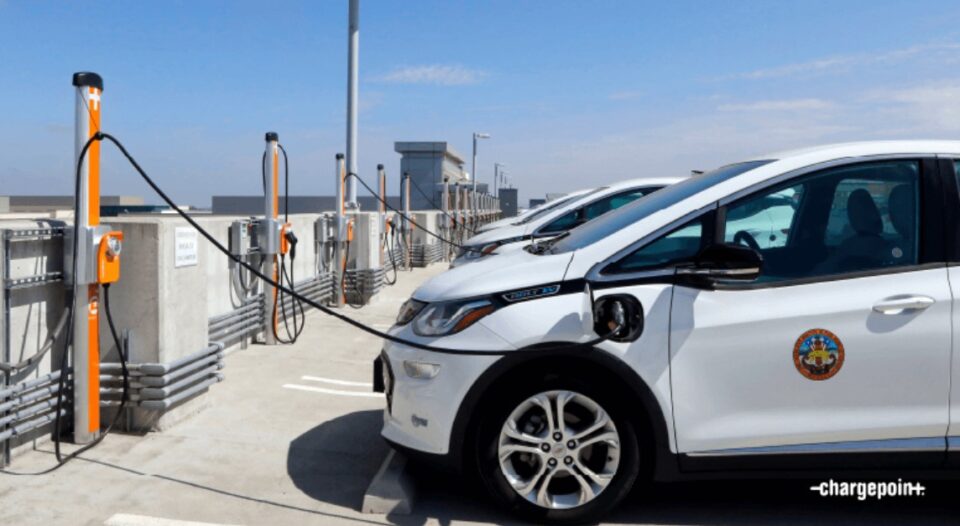How to Make Smarter Decisions in EV Investments by Buying EV Charging news
How to Make Smarter Decisions in EV Investments by Buying EV Charging news
Blog Article
New Developments in EV Charging: Just How the Sector Is Progressing to Satisfy Need
As the electric vehicle (EV) market continues to expand, the charging facilities is going through significant improvements to attend to the surging demand. The effects of these improvements raise important questions concerning the future of EV billing and its role in the broader energy ecosystem.
Growth of Billing Facilities
The rapid expansion of electrical car (EV) billing facilities is an essential element in promoting the prevalent adoption of electrical flexibility. As federal governments, personal business, and consumers significantly identify the relevance of minimizing carbon discharges, investments accountable networks have risen. This framework growth is necessary to minimize range anxiety, making sure that EV users have hassle-free accessibility to billing terminals.
Significant developments accountable terminal modern technology and deployment strategies have arised. Urban locations are seeing a spreading of public charging terminals, while country areas are progressively being incorporated right into the billing network. Collaborations in between automobile manufacturers and billing companies are ending up being more typical, helping with the establishment of comprehensive networks that enhance user experience and access.
Additionally, the combination of renewable resource sources right into billing terminals is getting energy, promoting sustainability in the EV environment. This change not just supports ecological objectives but additionally lines up with the rising need for green power solutions among consumers.
Ultra-Fast Charging Technologies
Ultra-fast charging modern technologies represent a significant jump forward in the EV billing landscape, allowing electrical cars to recharge in a portion of the moment contrasted to traditional charging techniques. These developments usually provide power levels exceeding 150 kW, with some systems rising to 350 kW or even more, significantly decreasing billing times to just 15-30 mins for a considerable fee.
Trick allowing technologies include developments in battery chemistry, power electronic devices, and thermal management systems. For example, high-capacity batteries with improved thermal stability enable faster charging without overheating. Furthermore, advancements accountable framework, such as liquid-cooled cords and modular billing terminals, assist in efficient power transfer, boosting the total customer experience
Major vehicle manufacturers and modern technology companies are proactively buying ultra-fast billing networks, recognizing the important role they play in conquering range anxiousness and accelerating the adoption of electric vehicles. As these modern technologies come to be extra extensively readily available, the EV market is anticipated to witness considerable development, making electric mobility a much more attractive alternative for consumers. On the whole, ultra-fast billing innovations are crucial in shaping the future of sustainable transport, leading the way for an extra comprehensive and effective charging environment.
Smart Grid Combination

Through need response strategies, wise grid systems can change charging timetables based upon grid conditions and electrical power rates. For instance, during periods of high demand, billing can be postponed to off-peak hours, leading to reduced expenses for customers and reduced stress on the grid. In addition, vehicle-to-grid (V2G) technologies enable EVs to discharge power back into the grid, giving secondary services and enhancing grid security.
Combination with renewable resource resources additionally improves the sustainability of EV billing. By straightening billing activities with durations of high solar or wind generation, clever grids promote a greener billing infrastructure. Ultimately, smart grid combination not only supports the expanding demand for EVs yet likewise adds to an extra durable and sustainable power future, see post placing the industry for long-term success.
Battery Advancements
Amidst the quick evolution of electrical cars (EVs), battery technologies stand at the center, driving innovations in efficiency, sustainability, and effectiveness. As the need for EVs rises, researchers and producers are focusing on boosting battery technologies to resolve obstacles such as array stress and anxiety and charging times.
Lithium-ion batteries stay one of the most widely used innovation, yet new materials and chemistries are arising to boost energy thickness and long life. Solid-state batteries, as an example, promise higher power storage space capability and enhanced safety by replacing fluid electrolytes with solid ones. This shift can considerably lower the danger of fire and raise the lifespan of batteries.
Furthermore, advancements in battery reusing processes are critical for sustainability. Business are developing techniques to recuperate useful materials like lithium, cobalt, and nickel from used batteries, promoting a round economy and minimizing environmental effect.

Global Billing Specifications

Initiatives are underway to develop worldwide billing standards that promote compatibility amongst different EV versions and billing terminals. Organizations such as the International Electrotechnical Compensation (IEC) and the Culture of Automotive Engineers (SAE) are functioning collaboratively with automotive suppliers and power carriers to produce detailed guidelines. EV Charging news. These criteria purpose to improve the billing advice procedure, lower the need for multiple adapters, and enhance user experience
Additionally, standardization can dramatically boost the expansion of the charging network, as it encourages financial investment by making facilities advancement a lot more foreseeable and reliable. As the EV market matures, a unified method to billing requirements will certainly be vital for guaranteeing that consumers can bill their cars conveniently and accurately, thereby sustaining the more comprehensive transition to sustainable transportation.
Final Thought
The electrical vehicle charging sector is undertaking considerable change to deal with the rising demand for sustainable transport. Developments in billing infrastructure, ultra-fast technologies, wise grid integration, and innovative battery remedies are crucial in enhancing user experience and functional effectiveness. The quest of worldwide billing requirements is critical for ensuring interoperability throughout different regions and systems. Collectively, these growths position the sector to sustain a broader fostering of electrical automobiles, ultimately adding to a more lasting future.
Urban areas are seeing an expansion of public charging terminals, while country regions are progressively being incorporated right into the billing network. Furthermore, developments in billing infrastructure, such as liquid-cooled cables and modular charging terminals, facilitate reliable power transfer, improving the overall customer experience.
In general, ultra-fast charging technologies are crucial in shaping the future of sustainable transportation, leading the means for a much more extensive and efficient charging ecosystem. - EV Charging news
By lining up billing tasks with durations of high solar or wind generation, smart grids promote a greener charging framework.Efforts are underway to establish worldwide charging criteria that help with compatibility among different EV models and billing stations.
Report this page